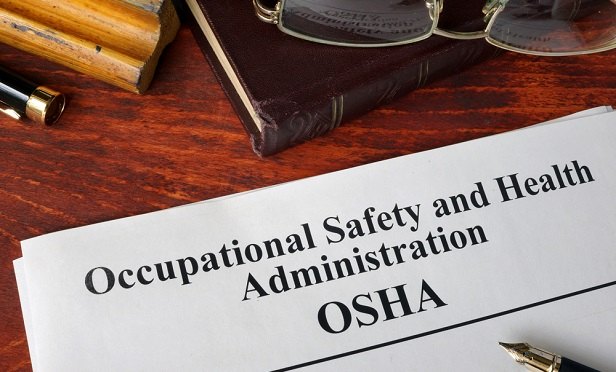 While businesses have long been required to keep data on workplace injuries and illnesses, they weren't required actually to report on them until 2016 rule obliged them to submit annual detailed reports electronically to the DOL.
While businesses have long been required to keep data on workplace injuries and illnesses, they weren't required actually to report on them until 2016 rule obliged them to submit annual detailed reports electronically to the DOL.
Claiming it was acting to protect worker privacy, the Department of Labor has scrapped an Obama-era requirement for larger employers to electronically file detailed reports on workplace injuries and illnesses.According to Reuters, the Occupational Safety and Health Administration has already published notice of the change in the Federal Register, with the rescission of the rule to be published on Friday.
It may have snuck in under cover of the government shutdown, but that doesn't mean the change isn't being fought. Reuters also reports that the public advocacy group Public Citizen has filed a lawsuit in federal court that seeks to restore the reporting requirements.
Related: Workers comp costs on the rise as mega claims grow
Business groups, for their part aren't happy that the effort to roll back the rule didn't go further.
While businesses have long been required to keep data on workplace injuries and illnesses, they weren't required actually to report on them until the 2016 rule obliged them to submit annual detailed reports electronically to the DOL.
But in 2017, the Trump administration put the rule on hold, and then this past summer changed it to allow employers just to submit a summary rather than detailed data—data that would enable the government to identify dangerous workplace conditions and to push employers into better compliance with workplace safety laws.
According to Vox, the normally three-month process by the Office of Management and Budget to review regulations before they were published was truncated to a mere six weeks, despite the shutdown and furlough of two thirds of OMB's employees. “By Friday,” says the report, “the changes were finalized and published.”
Public Citizen is joined in its lawsuit by the American Public Health Association and the Council of State and Territorial Epidemiologists, and Peg Seminario, safety and health director for the AFL-CIO labor federation, told Vox, “The process was totally opaque, not transparent, and clearly rushed. The only reason this was rushed through was because the Trump administration wanted to relieve employers of having to report their injury data.”
A spokesperson for OMB did not respond to Vox's request for comment from Vox. The DOJ also declined to comment.
This is only the most recent rollback of worker protections under the Trump administration. Other efforts included an attempt to allow employers to keep workers' tips and the delay of a rule to provide overtime pay to a broader pool of workers.
Public health researchers say they do not have enough data to adequately protect workers in potentially dangerous working situations, but that hasn't halted the move to end the rule. However, the reason cited by OSHA was the protection of worker privacy.
According to Vox, the agency's final rule states that the change would prevent “routine government collection of information that may be quite sensitive, including descriptions of workers' injuries and the body parts affected, and thereby avoiding the risk that such information might be publicly disclosed under the Freedom of Information Act (FOIA).”
Seminario of the AFL-CIO points out that not only do other agencies collect similar information, but the FOIA prohibits the sharing of such information.
Read more:
© 2025 ALM Global, LLC, All Rights Reserved. Request academic re-use from www.copyright.com. All other uses, submit a request to [email protected]. For more information visit Asset & Logo Licensing.







